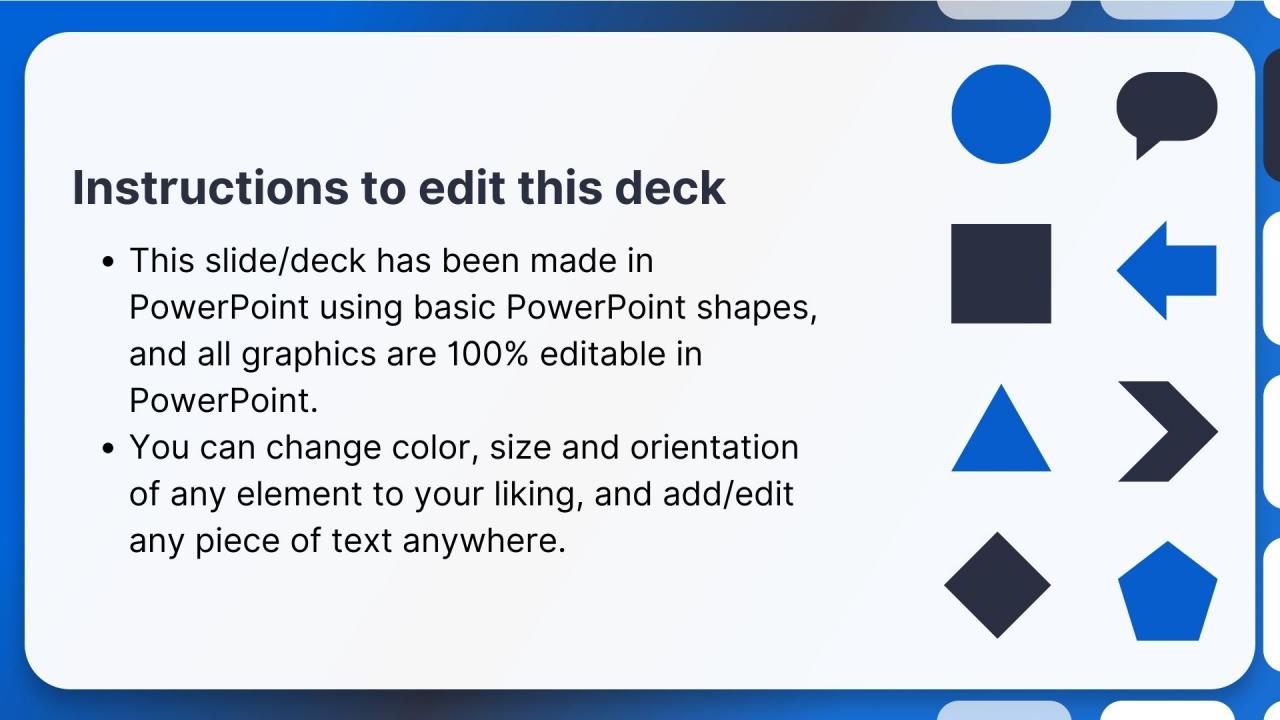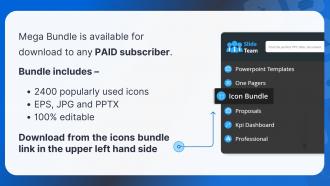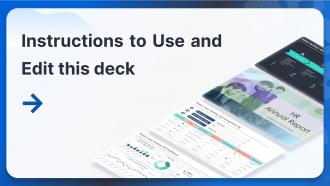A Guide To Salary Negotiation Training Ppt
This set of slides discusses salary negotiations and negotiables in salary negotiation. It also mentions the reasons why salary negotiation is important, ways to negotiate your salary, followed by a role-playing exercise to negotiate your salary in the end.
You must be logged in to download this presentation.
 Impress your
Impress your audience
Editable
of Time
PowerPoint presentation slides
Presenting A Guide to Salary Negotiation. These slides are 100 percent made in PowerPoint and are compatible with all screen types and monitors. They also support Google Slides. Premium Customer Support available. Suitable for use by managers, employees, and organizations. These slides are easily customizable. You can edit the color, text, icon, and font size to suit your requirements.
People who downloaded this PowerPoint presentation also viewed the following :
Content of this Powerpoint Presentation
Slide 1
This slide provides information about salary negotiations. It emphasizes that salary negotiations are conversations between an employee and a current or prospective employer representative to secure a higher salary. It also mentions that, despite the importance of negotiating salary and benefits, people are afraid of doing so for various reasons:
- Missing out on an opportunity
- Lack of Negotiating skills
- Avoiding an unpleasant situation
- Lack of self-confidence
Slide 2
This slide describes what is negotiable during a salary negotiation. It states that the job offer is negotiable in every way. Salary, benefits, and working conditions, such as days and hours worked, work flexibility options, and so on, are all negotiable. It also emphasizes that salary negotiations differ by position and that salary negotiation leeway increases with position level within the organization. Executives and senior managers have the highest negotiating power in terms of salary, benefits, and perks.
Slide 3
This slide discusses the factors that influence an employer's salary negotiation leeway. The following factors are considered: the job level within the organization, the scarcity of job-related skills and experience in the job market, the selected individual's career advancement or stage, as well as their expertise, and the salary range for the job within the organization, the compensation paid for equivalent positions in the geographic region, and the current economic conditions in the industry.
Slide 4
This slide provides information regarding reasons why negotiating salary is essential. The reasons are: Not negotiating will cost you; Failing to negotiate, is failing to grow; Your current salary follows you to the next job; Negotiating salary shows an employer that you know your value, one will never get what they want unless they ask for it.
Instructor’s Notes:
- Not Negotiating Will Cost You: When you negotiate your salary, you're not just negotiating the number on your next paycheck. Taking less than you deserve can harm your work performance. Underpaid employees are less satisfied and less productive, which means you may be less likely to earn that raise in the first place
- Fail To Negotiate, Fail to Grow: Salary negotiation provides benefits other than more money. It teaches you to handle difficult workplace conversations while remaining professional, cooperative, and non-adversarial
- Your current salary follows you to the next job: By not negotiating current salary, one reduces the amount they will have to show their next employer for them to evaluate their potential pay in that job. Negotiate a higher salary, and your next employer will be more likely to pay you more
- Negotiating salary shows an employer that you know your value: Salary negotiations demonstrate to your employer that you are competent, confident, and value your abilities. Those are the same skills that your employer will value when it comes to increasing your level of responsibility, entrusting you with critical clients, and promoting you to leadership positions
- One will never get what they want unless they ask for it: You're unlikely to get what you want unless you ask for it, whether money, perks, benefits, or job responsibilities
Slide 5
This slide depicts information regarding the points to be kept in mind when an employer asks about salary expectations. It highlights that an employer may enquire about your salary expectations during the application, interview, or after the interview process.
Slide 6
This slide provides information regarding things to do while receiving an offer. It highlights that it is usually advisable to take some time to reflect after receiving an offer in person, over phone, or by email. One must have complete information about benefits in addition to salary. It also mentions the process to be followed when a person receives an offer over a call/in-person and an offer received in writing.
Slide 7
This slide provides tips for negotiating salary effectively. The recommendations are: Start by calculating your economic worth, Research the market average, Prepare your talking points, Ask for more, Share expenses you’re incurring, and Be flexible.
Slide 8
This slide depicts the salary negotiation tip “Knowing your Economic Worth." It emphasizes the importance of knowing exactly how much value one can offer an employer before negotiating a salary. Geographic location, years of experience in the industry, years of management experience, education level, professional standing, skills, certifications and licenses are all factors that can affect your salary.
Slide 9
This slide depicts the salary negotiation tip "Research the Market Average." It mentions that knowing the market average can provide a good starting point for your salary request and serve as a justification as well. It also highlights the questions to consider while beginning your market research.
The questions are as follows:
- What is the national average salary for the position?
- What is the average in your geographical location and nearby cities?
- How much do comparable companies in your area pay employees in this position?
Slide 10
This slide emphasizes the significance of “Preparing your talking points" while negotiating a salary. It mentions that before contacting the employer, make a list of talking points that are as specific as possible. Among the possibilities are:
- Results achieved in previous roles, such as goals met, awards received, and revenue generated
- Years of industry experience, especially if you have more than what the employer specified as a requirement
- Certifications or skills, especially if they are in high demand in your industry
Slide 11
This slide depicts "Ask for more" as a salary negotiation tip. It emphasizes the one fundamental rule of salary negotiation: Offer the employer a slightly higher figure than your expected salary. Even if they negotiate downwards, you'll still get a good salary. It also states that while providing a salary range, make sure the lowest number you provide is still a reasonable amount.
Slide 12
This slide explains “Sharing your expenses" as a salary negotiation tip. It emphasizes that another reason an employee might want to ask for a raise is to cover any expenses (such as commuting or vehicle wear and tear) incurred due to accepting the job. It also mentions that it is not uncommon for employees to request that their pay be adjusted to account for their expenses.
Slide 13
This slide depicts the salary negotiation tip Be Flexible. It emphasizes that if the employer cannot provide the desired salary, other forms of compensation such as stock options, vacation days, and work-from-home days may be available. In some cases, these benefits may be as valuable as a paycheque.
Slide 14
This slide depicts the salary negotiation dos and don'ts. The dos are as follows: Always research the expected salary for the position you're seeking, allow the employer to construct the first salary offer, and if asked, say you expect a competitive market salary, get the offer in writing, and so on. Don'ts includes: Raising your salary before the employer does, inflating your current earnings to receive a higher salary offer, feeling obligated to accept the first salary offer, becoming too aggressive in negotiating your expected salary, and accepting an offer if you're unsure about the job or the company.
Slide 15
This slide provides a role play exercise (Job Seeker’s and HR Manager’s perspective) on salary negotiation that trainees can perform.
A Guide To Salary Negotiation Training Ppt with all 31 slides:
Use our A Guide To Salary Negotiation Training Ppt to effectively help you save your valuable time. They are readymade to fit into any presentation structure.
-
I loved the hassle-free signup process. A few minutes and, I had this giant collection of beautiful designs.
-
It's always a delight to see new templates from you! I am extremely pleased with the fact that they are easy to modify and fit any presentation layout in seconds!






































































